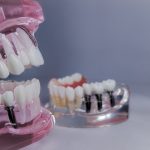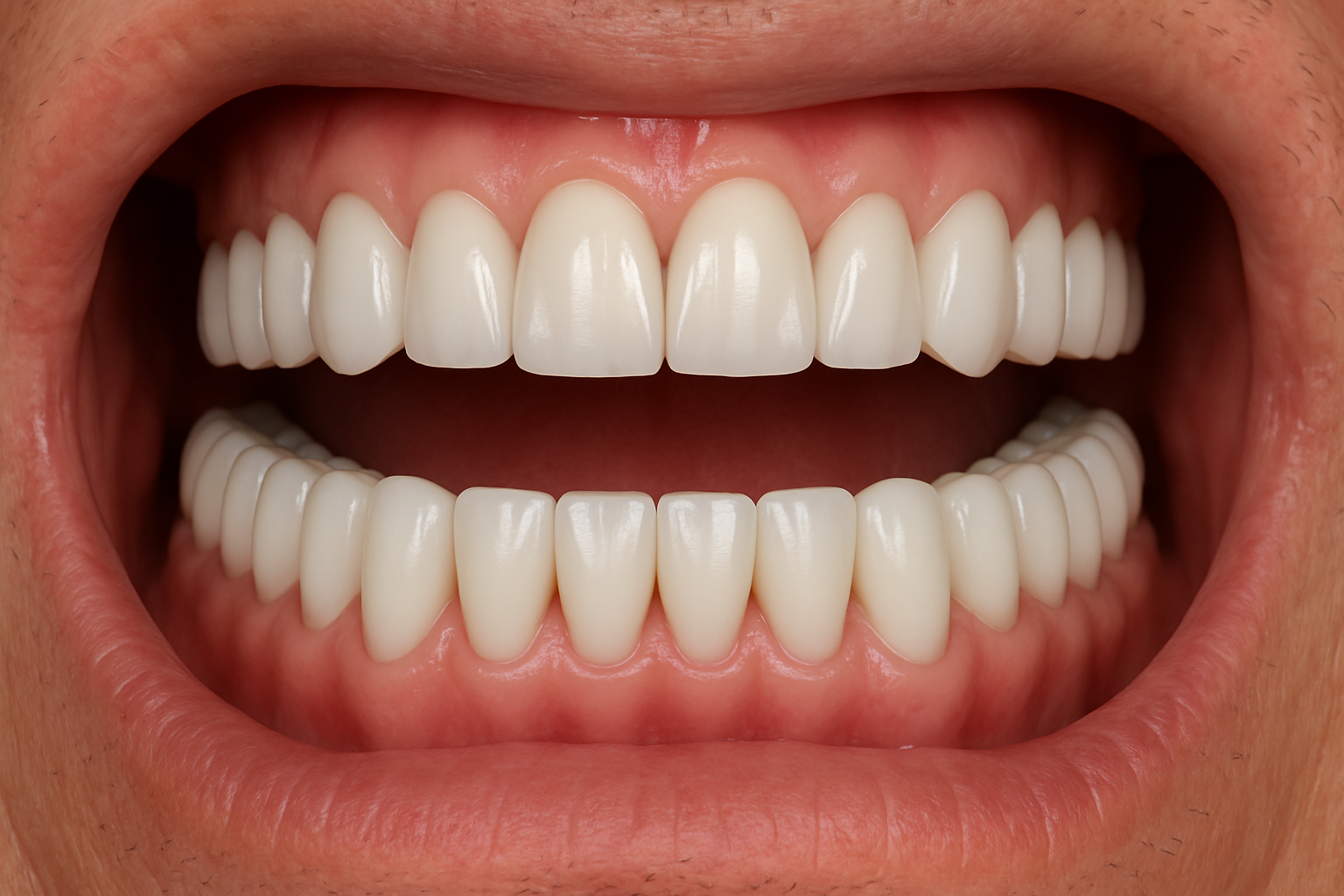Full mouth teeth implants restore an entire arch of teeth using dental implants and a fixed prosthesis. This post is for anyone weighing long-term tooth replacement options; you’ll learn what full mouth teeth implants are, who qualifies, what the process looks like, and next steps.
What are full mouth teeth implants?
Full mouth teeth implants are implant-supported full-arch restorations that replace all teeth in the upper or lower jaw. Instead of placing a single implant for each missing tooth, a full-arch solution uses several implants to support a fixed bridge or prosthesis.
Common approaches include All-on-4 and All-on-6 systems, which use four or six implants to anchor a full set of teeth, and the option of multiple individual implants with crowns. Key benefits are improved stability, better chewing function, and a natural appearance compared with removable dentures.
Who is a good candidate for full mouth teeth implants?
Not everyone is a candidate, but many people who are unhappy with dentures or who have multiple failing teeth can benefit from full mouth teeth implants. Good candidates typically meet both medical and lifestyle criteria.
- Sufficient jawbone or willingness to have bone grafting if needed
- Controlled gum disease and good oral hygiene habits
- Overall health that supports surgery (diabetes controlled, no uncontrolled heart conditions)
- Non-smokers or patients willing to quit during healing
- Realistic expectations about timeline, costs, and maintenance
What to expect: treatment steps and recovery
Treatment usually starts with a consultation, oral exam, and 3D scans. If teeth need extraction or bone grafts are required, those may happen first. Implant placement follows, often with temporary teeth placed the same day or soon after. Once implants fuse with bone (osseointegration) over a few months, the final prosthesis is fabricated and attached.
Recovery and aftercare:
- Healing time: initial healing days to a couple weeks; full integration takes 3–6 months
- Pain management: prescription or OTC meds as directed; swelling and soreness are normal
- Eating: start soft foods, avoid hard or sticky items until cleared by your dentist
- Oral hygiene: gentle cleaning around implants, follow special instructions for temporary prostheses
- Follow-up visits: regular checkups to monitor healing and adjust the prosthesis
Risks, costs, alternatives, and next steps
Risks include infection, implant failure, nerve or sinus issues, and the need for additional surgeries like grafts. Time and cost are significant considerations—full mouth teeth implants require multiple visits and an investment that varies by complexity.
Cost factors that raise the price include:
- Number of implants (All-on-4 vs. more implants)
- Bone grafting or sinus lifts
- Type of final prosthesis and materials
- Advanced imaging or guided surgery
Alternatives may be removable full dentures, implant-retained overdentures, or fixed bridges when only a few teeth are missing. Dentures cost less upfront but offer less stability and long-term benefits than implants.
If you think full mouth teeth implants might be right for you, schedule a consultation to get personalized advice, 3D scans, and a treatment estimate from our office.






